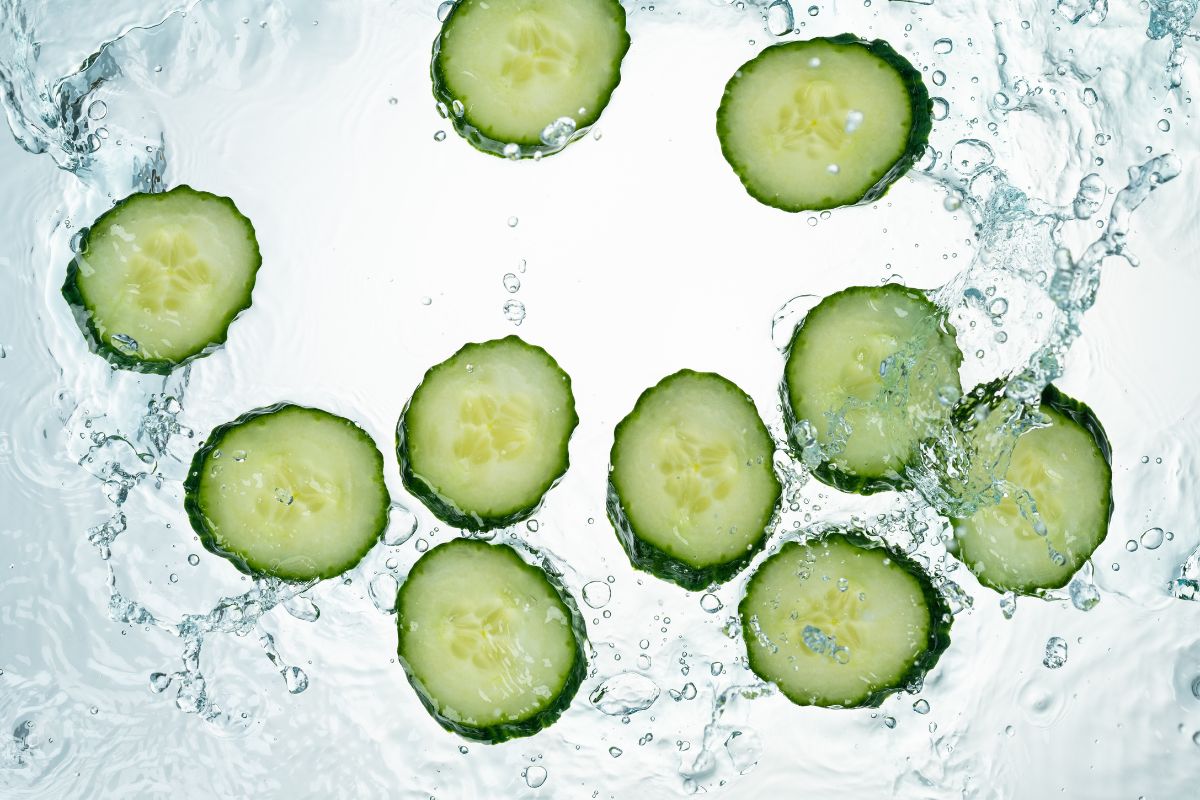It is possible to rehydrate dehydrated food in hot water, cold water, fruit juice, or milk through hot-soaking, cold-soaking, and cooking in water. The rehydration method you choose depends on the type of food. Use hot or cold water for dehydrated vegetables and fruits, milk for freeze-dried fruits, and boiling water for meat.
Table of Contents
How to Rehydrate Dehydrated Food
You have several options to choose from when rehydrating dried food. The method you choose will largely depend on the type of dehydrated food and how much time you have for the process.
Hot-soaking Method
Hot-soaking is ideal for perishables such as dried meat, freeze-dried veggies, and freeze-dried fruits.
Here’s how to rehydrate food by soaking in hot water:
- Boil water and pour it into a heat-safe bowl. Start with twice the amount of water for the amount of dried food you wish to rehydrate.
- Pour your dehydrated food into the hot water so that it is submerged in the water with 1-2 inches of water above it.
- Cover the bowl to prevent heat loss and make the rehydration process faster.
To rehydrate dehydrated meat, soak it in hot water for a maximum of 30 minutes. It’s unsafe to soak meat for over 30 minutes at ambient temperature. After soaking, bring the water to a boil. The dehydrated meat is safe to eat after the water has boiled.
You can rehydrate dried vegetables and dehydrated fruits by hot-soaking them until they get tender.
Cooking Liquid Method
It’s easy to moisten dry food by cooking it in water or broth. The method is much faster than hot-soaking, and you’ll save time. It works best for dried fruits and vegetables cooked into soups and stews.
To rehydrate dried food in cooking water, add it alongside the other ingredients in the dish. The total cooking time will depend on the other ingredients. Add your dried food immediately to any recipe where the other ingredients cook quickly to ensure your dried food has enough time to rehydrate.
Combined Soaking & Cooking Method
For most dried foods, a combination of soaking and cooking is necessary to rehydrate the food. Dense dried fruits and vegetables such as zucchini and carrots require this combination.
If you have dried leaf vegetables, soak them in hot water for 5-15 minutes, and then bring the water to a boil. Allow the vegetables to simmer until they reach your preferred doneness.
For dried root, stem, and seed vegetables, soak them in cold water for 30 to 90 minutes and then bring the water to a boil. Simmer them, preferably in the soaking water, until tender and all the excess water has evaporated.
Can You Rehydrate Dehydrated Food with Cold Water?
You can rehydrate dehydrated food with cold water, but this method takes longer. When using cold water to rehydrate dried food, use water at room temperature.
Freeze-dried foods can be rehydrated in cold water as long as they were cooked prior to being freeze-dried.
Is it Safe to Rehydrate Dehydrated Food?
Yes, it is safe to rehydrate dehydrated food. Take care when rehydrating to ensure the food is properly cooked before eating it.
11 Tips for Rehydrating Dried Food
These pro tips will help you safely rehydrate any type of dehydrated food:
- Always add enough water to rehydrate food; use a ratio of two parts water to one part dehydrated food.
- Aside from hot water and cold water, you can steep dry food in milk and fruit juice.
- Cook rehydrated foods until they are soft before eating them, even if you had pretreated them by blanching before dehydrating.
- Dried fruit and vegetable powders do not require rehydration.
- For concentrated nutrition, you can grind dehydrated food into powder before rehydrating.
- If using dried vegetables and fruits in a cooked dish, add them directly to the cooking liquid.
- Use clean or purified drinking water to soak and cook your food.
- Refresh dried foods only when you are ready to use them.
- To help food retain flavor, color, and nutritive value, always cook food in their soaking liquid.
- Use hot or boiling water only if you will cook the food after soaking.
- Your food is fully rehydrated once it plumps up to 4 times its dehydrated size.
How Long Does it Take to Rehydrate Food?
It takes 10-15 minutes to rehydrate most dried food in hot water and anywhere from five minutes to three hours in cold water.
The rehydration time depends on the temperature of the rehydrating liquid, how much food you put in, the size of the pieces, and the type of food. Denser foods take longer to rehydrate.
Best Dehydrated Foods to Rehydrate
Instead of heading to a grocery store to buy ingredients, rehydrate some of your stored dried food instead!
Some of the best foods to rehydrate include:
1. Fruits & Fruit Leather
Apricots, grapes, peaches, bananas, apples, and mangoes are delicious when rehydrated in fruit juice or hot water. Rehydrated fruits can be a delicious addition to smoothies and parfaits, while rehydrated fruit leather makes a lovely topping for desserts.
2. Herbs
Rehydrating herbs allows the release of essential oils and increases their potency. Try rehydrating dill, sage, mint, basil, thyme, marjoram, and lavender in hot water before cooking or baking to bring out the best flavor from dried herbs.
3. Lean Meats
It is easy to rehydrate dried meat such as chicken, fish, and beef. Rehydrating meat is a great way for hikers to get a hot meal when backpacking and camping! Simply boil the meat in hot water or broth for 10 to 15 minutes.
4. Sauces & Syrups
Dehydrated pizza sauce, spaghetti sauce, jam, maple syrup, barbecue sauce, and even molasses can easily be rehydrated to add flavor to any meal. Add hot water to your dehydrated sauce and whisk vigorously until smooth.
5. Vegetables
Some of the best vegetables to rehydrate are beets, cabbage, green beans, zucchini, mushrooms, broccoli, carrots, eggplant, tomatoes, kale, chard, spinach, and cucumbers.

